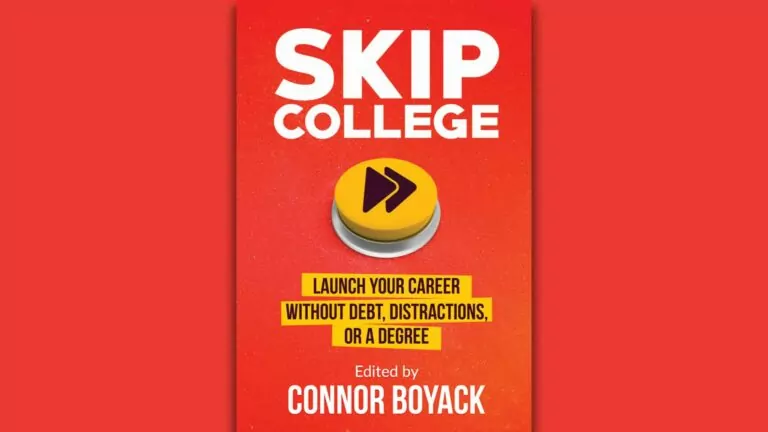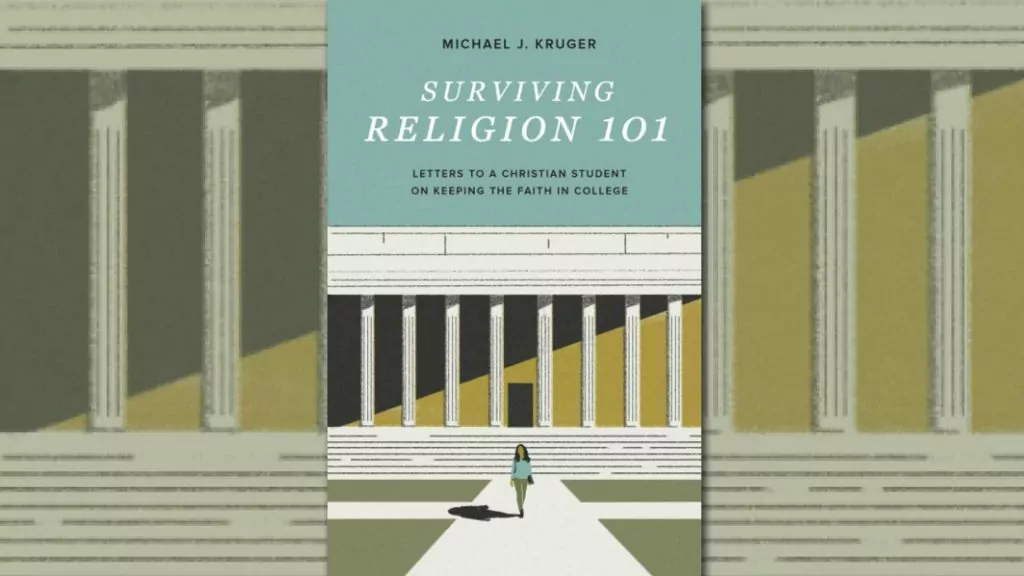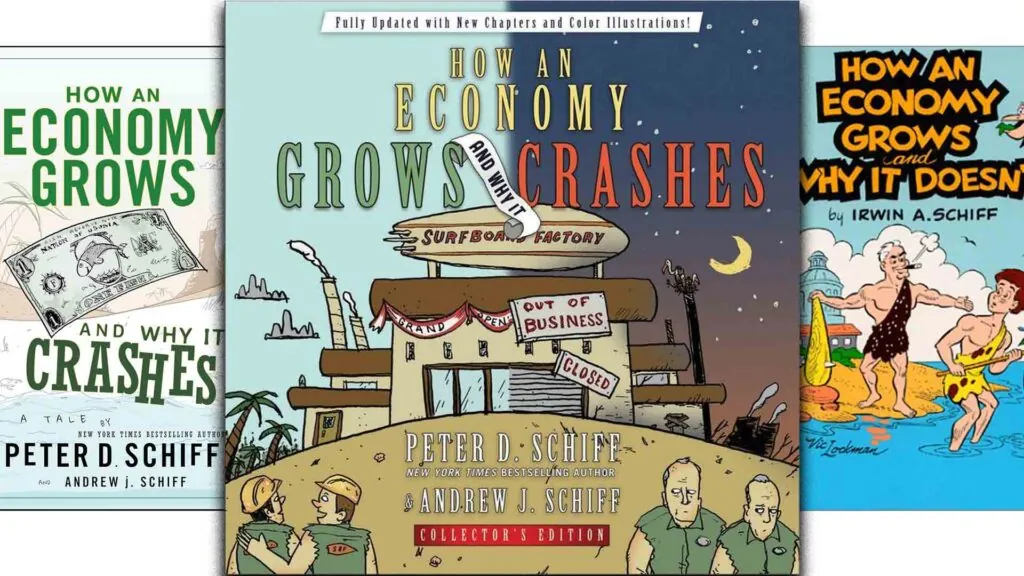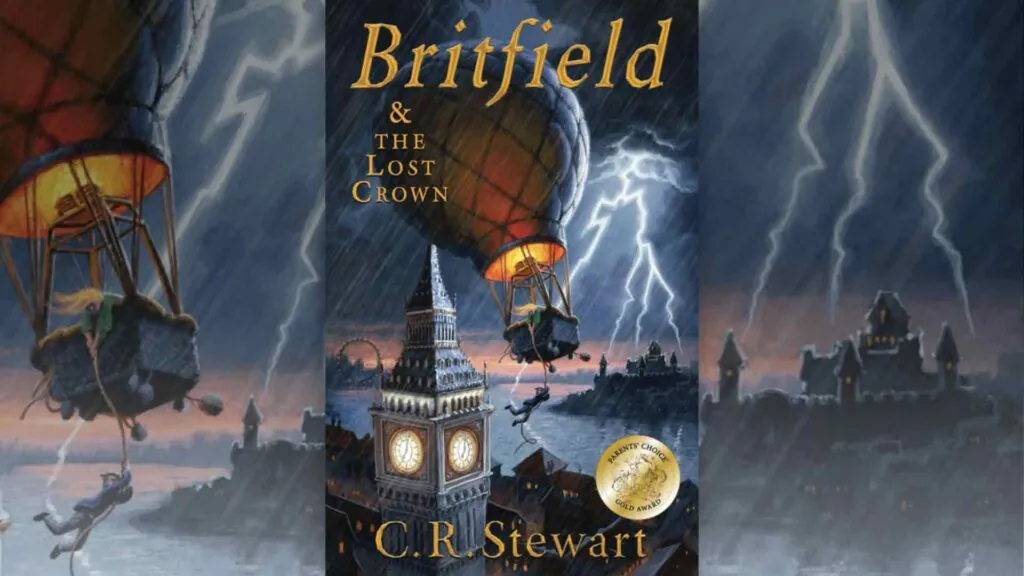edited by Connor Boyack
2019 / 250 pages
Rating: Good/GREAT/Give
This is the case against college, but not because any of the 9 contributors here think education is unimportant. They just want to share what they believe is a shorter, cheaper, more enjoyable, and more productive way to get the education you actually want.
Editor Connor Boyack shares in his introduction that a survey of 600 human resource leaders found “90 percent were open to hiring a candidate without a four-year degree.” If you’re going to be a nurse, doctor, or lawyer, you’ll need a degree, but in other fields, increasingly, it isn’t the requirement it once was. And with far more people getting degrees today than in our parents’ and grandparents’ time, a degree also isn’t the guarantee of high-paying employment it once was. Add to that the ever-increasing tuition costs, and what kind of return on investment are you going to get?
Contributors Ian Morehouse and Brittany Hunter pile on by highlighting just how anti-intellectual many college campuses have become.
Morehouse hits it from the student side: “Everybody cheers when class is canceled because they aren’t there for learning but for a piece of paper.” So, he asks, why not create your own piece of paper by building up a résumé of accomplishments? Since it is hard to get a job without experience and hard to get experience without a job, Morehouse pitches the idea of offering to do a project or two for free – maybe create a website for a company. Your low cost means they can take a chance on you and you can learn as you work. Getting paid nothing to work might sound like a sucker’s deal until you remember that in university your work actually costs you tens of thousands.
Hunter’s chapter, “Indoctrination Factories,” focuses more on the professors and administration. She uses mostly US examples, but Canadian Jordan Peterson gets a mention for how his University of Toronto administration pressured him to use students’ “preferred” pronouns. He isn’t Christian, but wouldn’t submit to compelled speech. The fact that they came after him as a professor highlights just how hard it’d be for students to take the same stand.
Next up is Kerry McDonald, on learning through living. She shares this quote:
“…very little of what is taught in school is learned, very little of what is learned is remembered, and very little of what is remembered is used.”
Sometimes that’s intentional: I took an education course that covered the evolutionary origins of play, and I crammed what I needed into my short-term memory so I could pass that test and the course, but I sure didn’t want to remember any of this nonsense afterward.
The material we actually retain is what we value and what we use. Remember all those young men who weren’t great students, but became great learners after they left school? That’s because now they’re studying something that has a clear application to what they’re doing. In this chapter McDonald offers tips on how you can best plot out your own self-directed educational path. Mentors and digestible, do-able, micro-goals are important, but the key might simply be that there’s no better way to learn than doing. And if you start doing right out of high school, imagine how good you might become in four years time! Now compare that to where you’d be if you got a degree and only started doing after graduating.
The editor of Skip College is Mormon, and I suspect the rest of the contributors run the gamut from godless to Christian. But what makes this book valuable to Christians is the one principle we’d agree with and which every contributor supports: young people need to consider how to best steward the skills, money, and time they’ve been given.
This would be a great one for any high school student to contend with, whether they are thinking of university, or planning for something else. And it’d be particularly needed if a student has no plans at all, as this gives them no excuse but to start building up their résumé, whether it’s academically or otherwise. This is certainly a book all my kids are going to read.
While Skip College is a little difficult to find in Canada in paperback, the American publisher, LibertasPress.com, will ship north of the border. And it can be readily found as a Kindle e-book on Amazon.ca.












